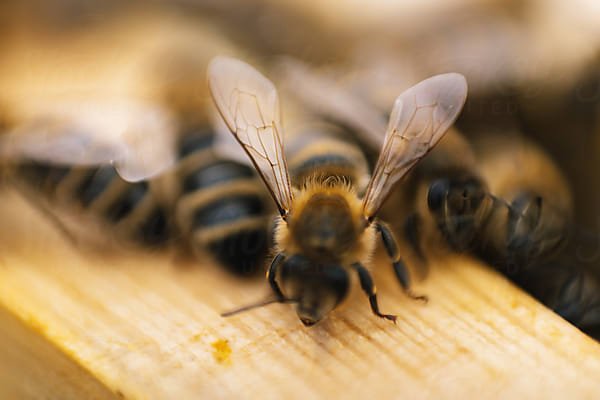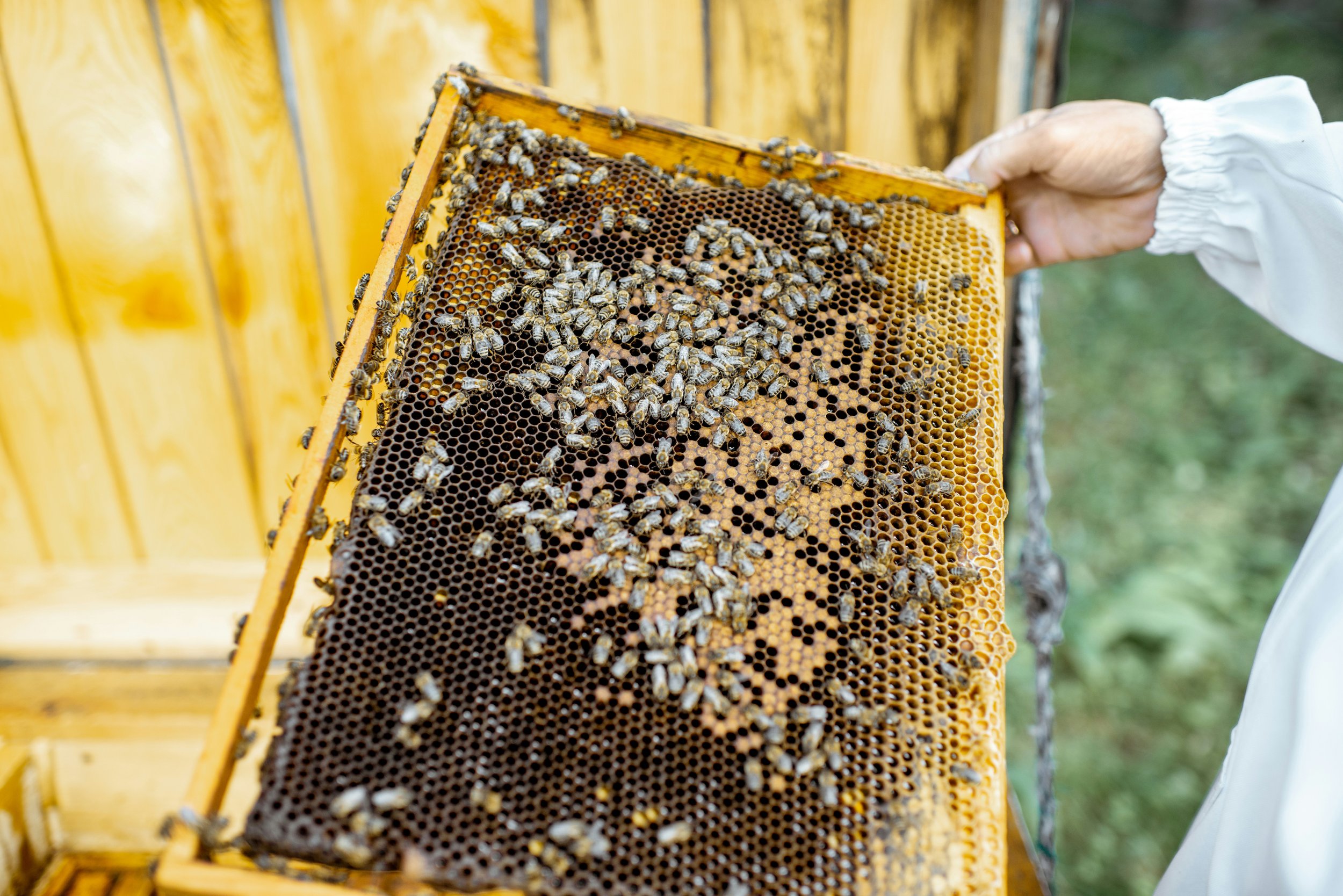
A critically important pollinator at risk
Honeybees are vital to the pollination of plants - including produce - but their population is declining.
Bee colonies are collapsing
Honeybee populations are under a great deal of stress from multiple sources. For more than a decade scientists have been studying a phenomenon known as Colony Collapse Disorder (CCD), wherein an entire colony of bees dies suddenly due to disease, pesticides, lack of forage-able plants or a combination thereof. CCD has affected hives all over the world, and has caused devastating loss in bee populations. Such a massive loss is highly detrimental to our economy, ecology and well being.
Global pollinators
Bees of all kinds are critically important pollinators. They are responsible for pollinating not only natural plants, but also for a significant portion of the foods we eat on a regular basis. It has been calculated by the USDA that one in every three bites of food eaten by the average American was pollinated by bees. Over 70 varieties of fruits and vegetables are reliant on bees for pollination, as well as most herbs, spices, nuts and cattle feed. Without this pollination the plants would not germinate and therefore could not produce crops.
70%
of flowering plants in the United States are pollinated by honeybees
of the world’s flowering plants rely on honeybees for pollination
25%
5,000
flowers are visited by a single honeybee every single day

An economic impact worth buzzing about
Through their contributions to agriculture and food production bees have been estimated to contribute $20 billion to the U.S. economy on an annual basis. Pollinators as a whole have been estimated to contribute $577 billion annually worldwide. As bee populations decline so too does their financial impact, and the world loses out on significant monetary gains while also risking a weakened economy.




